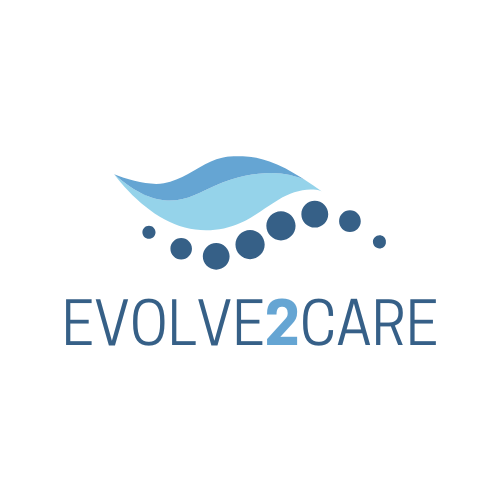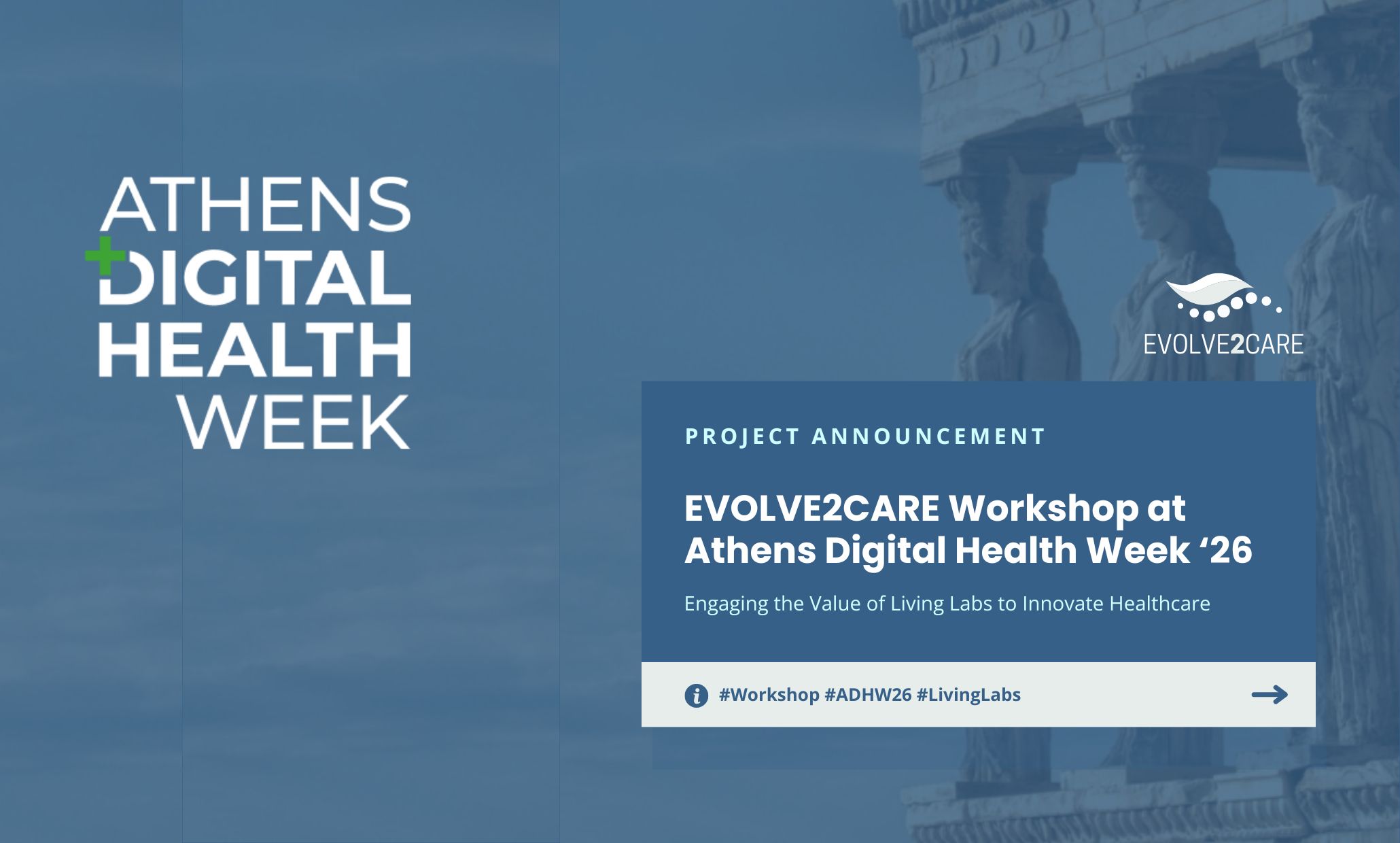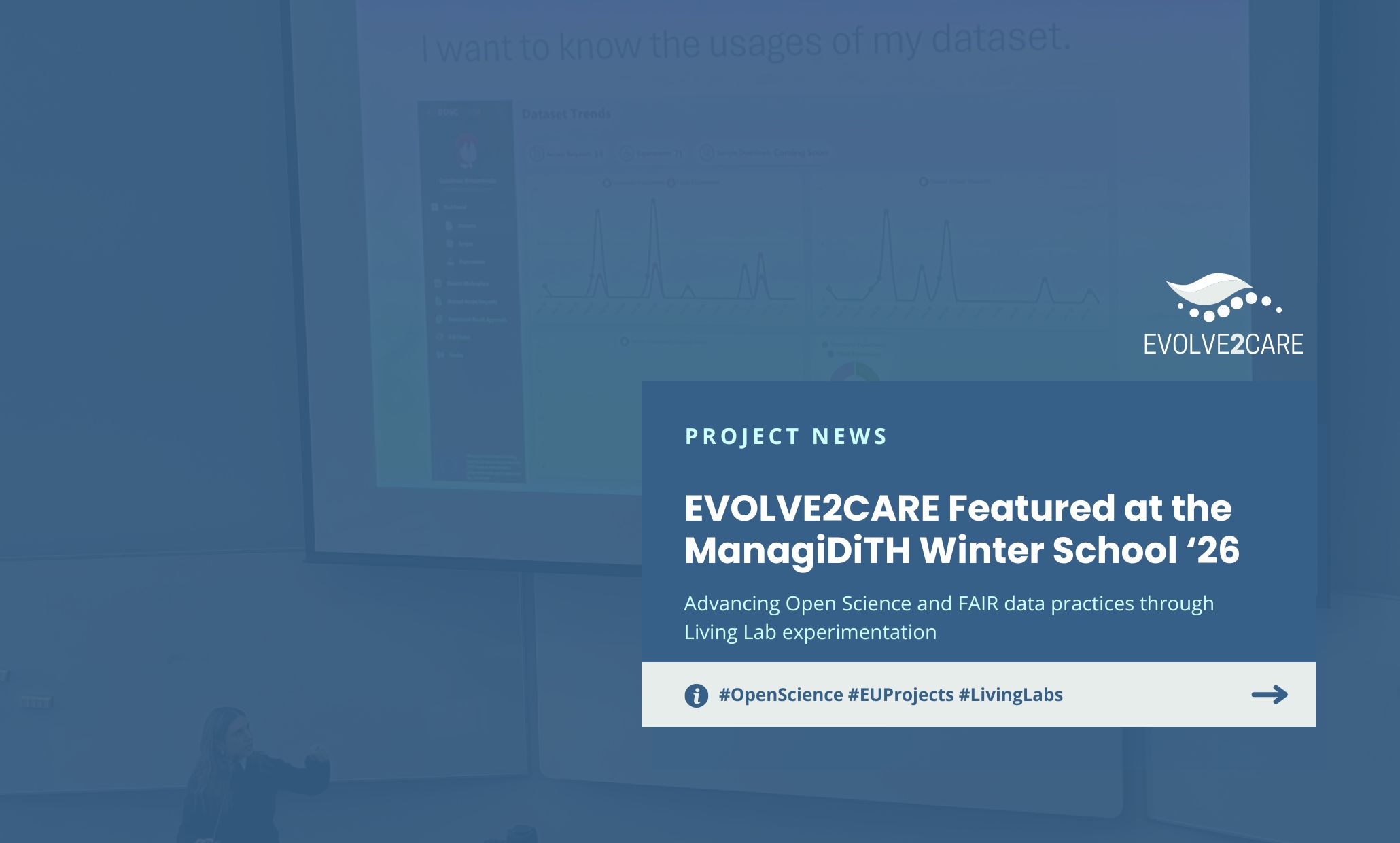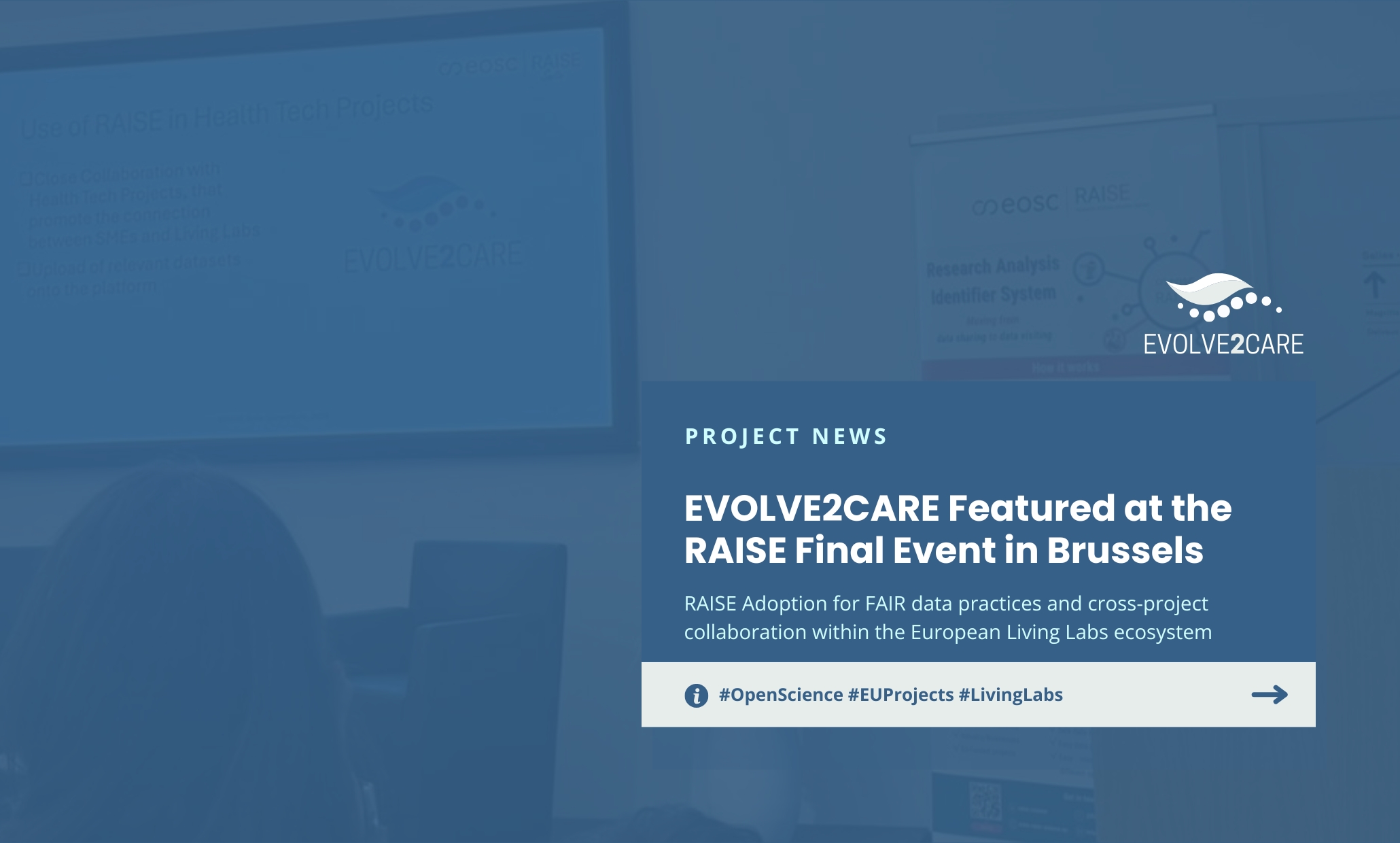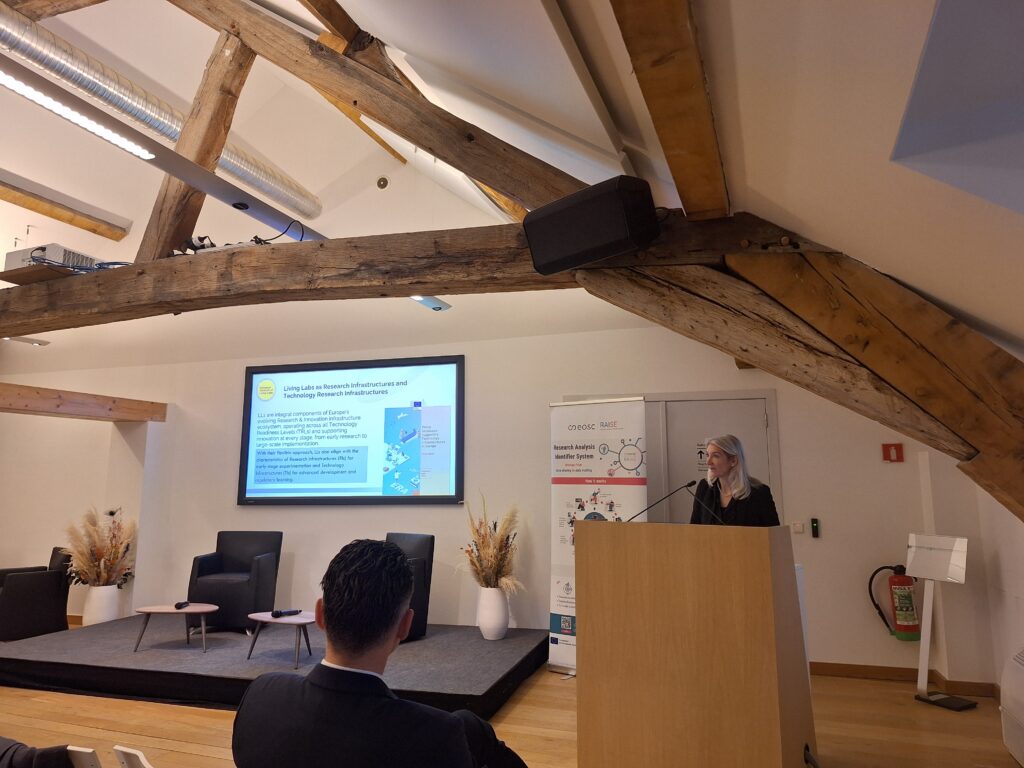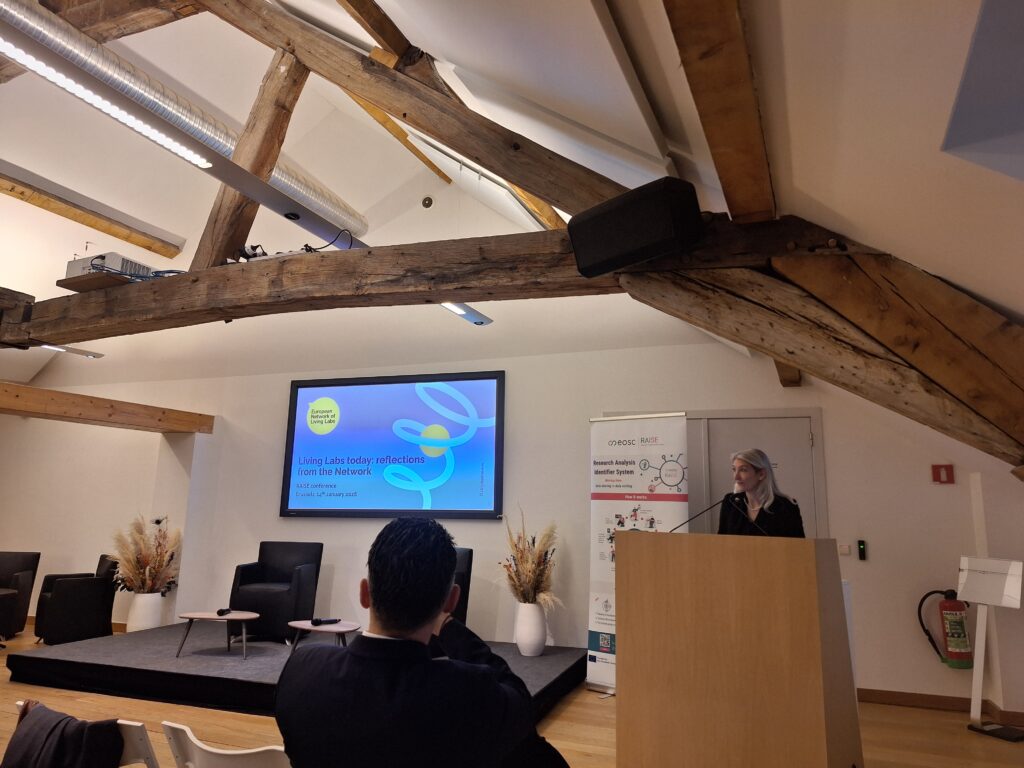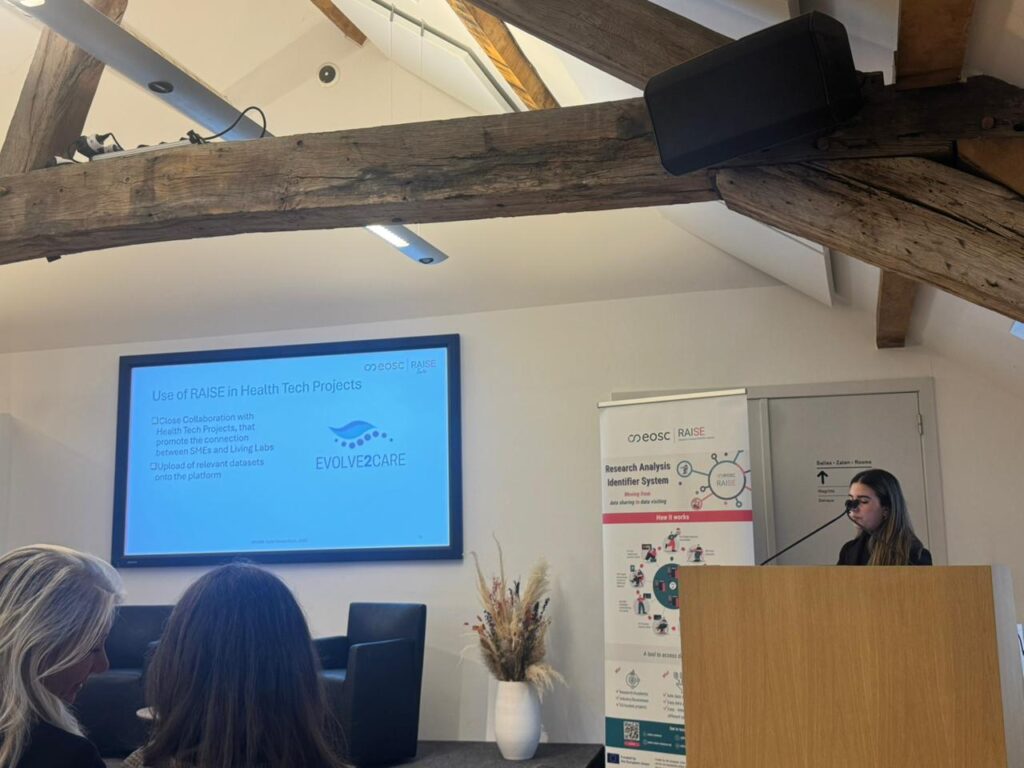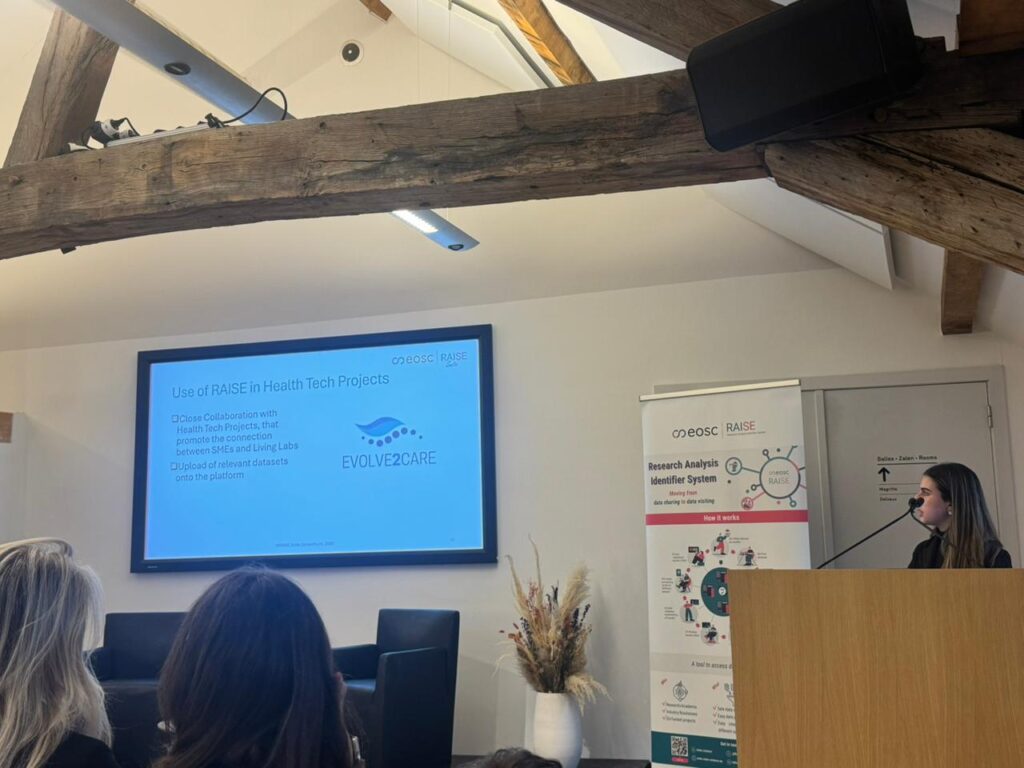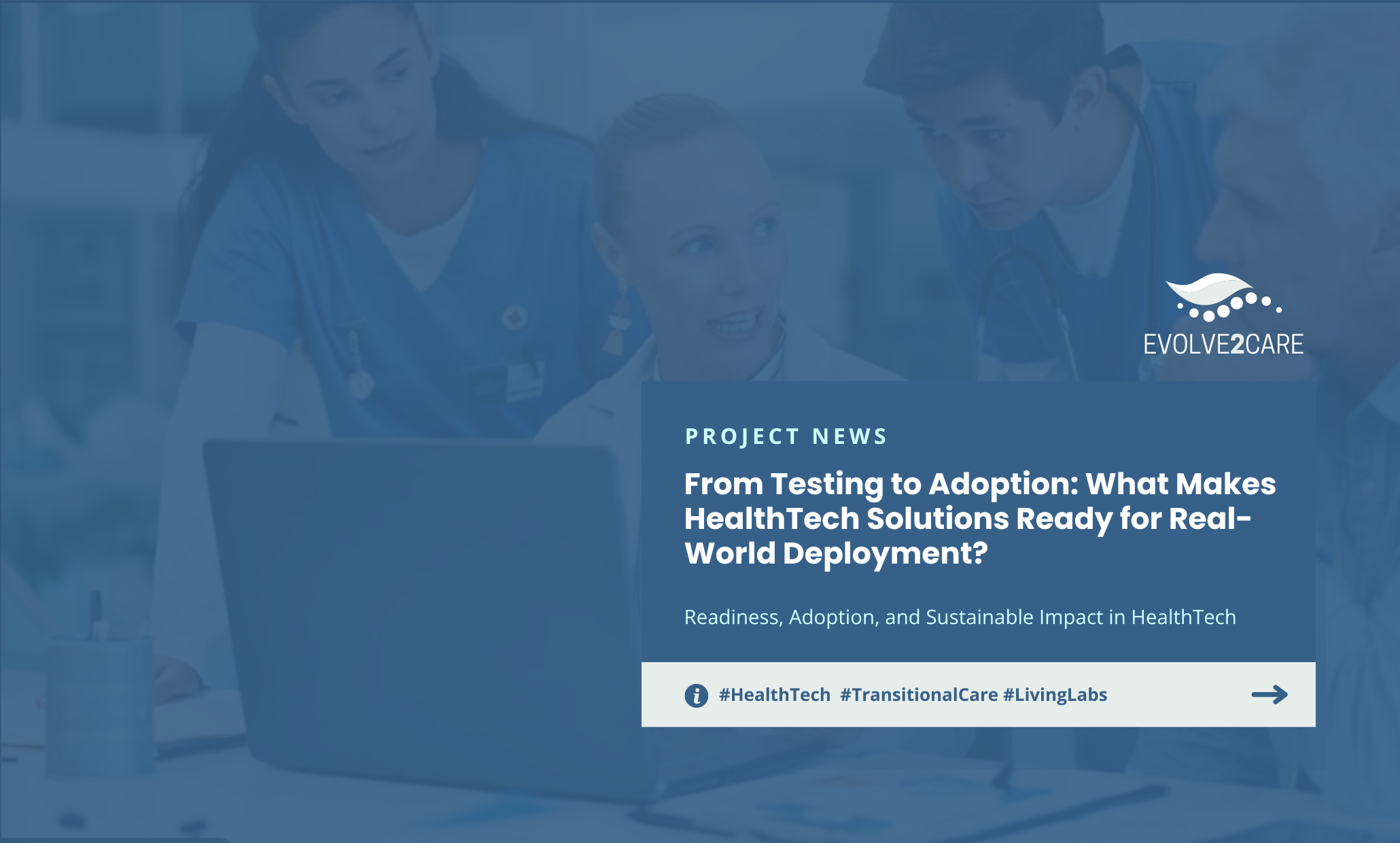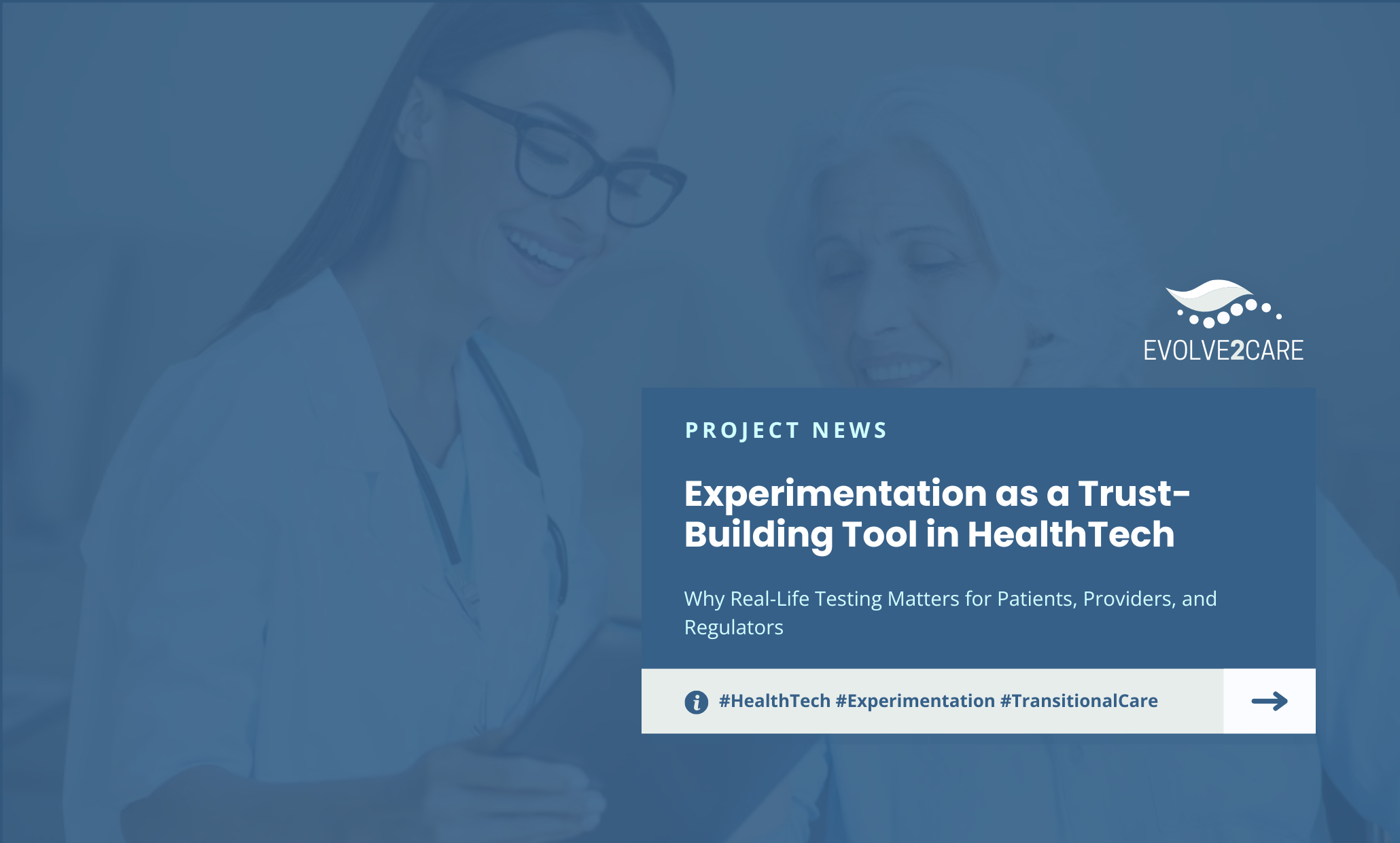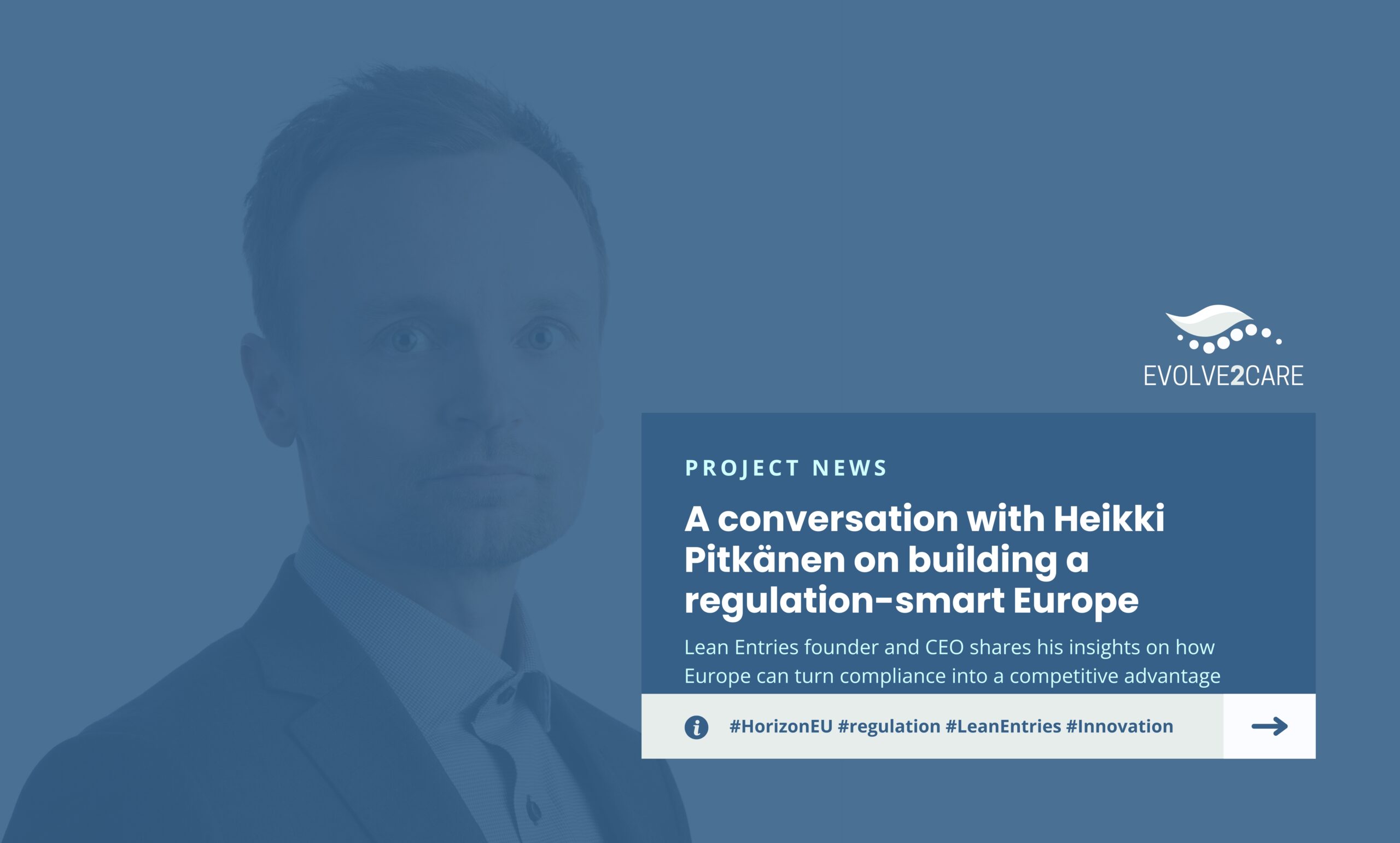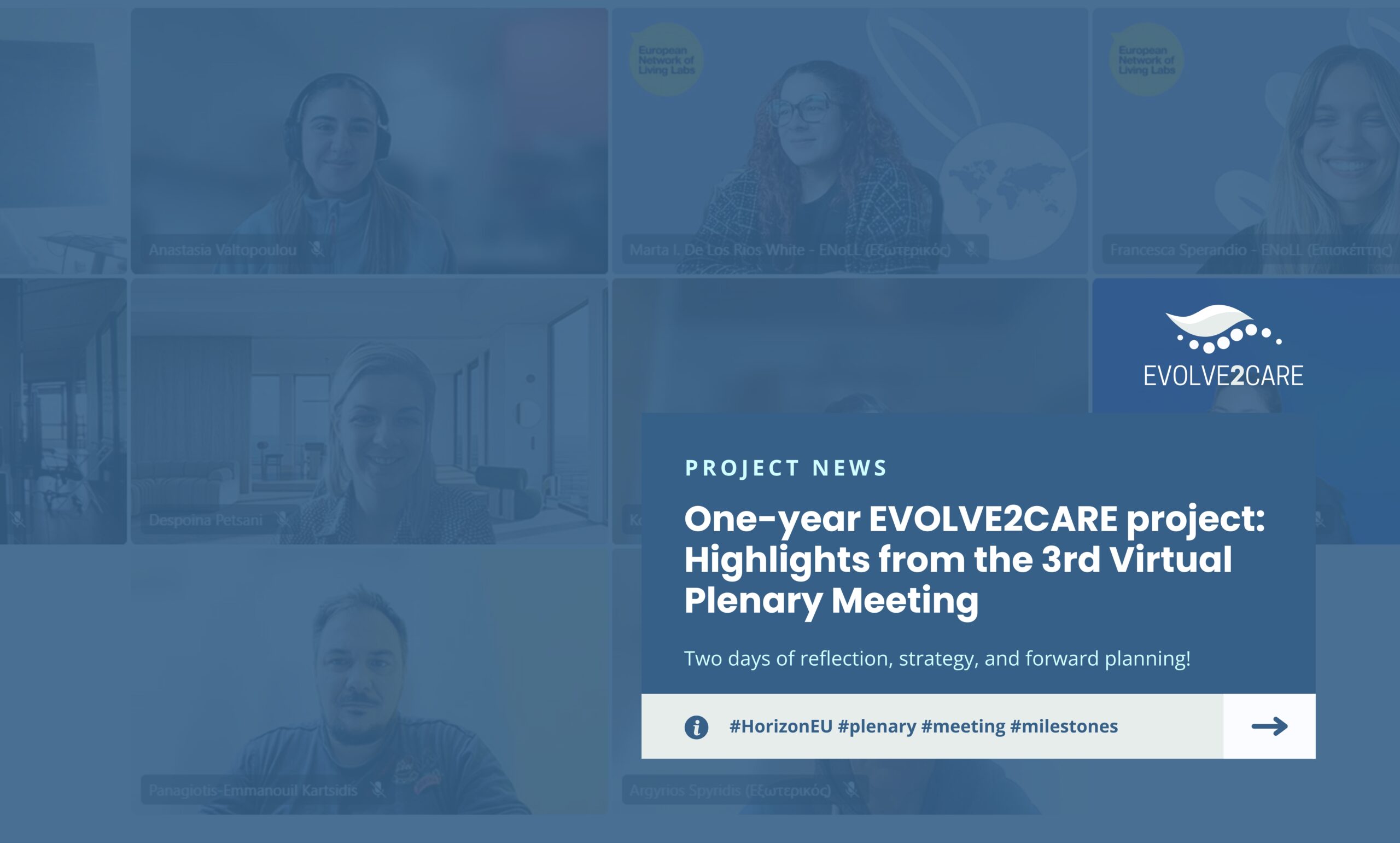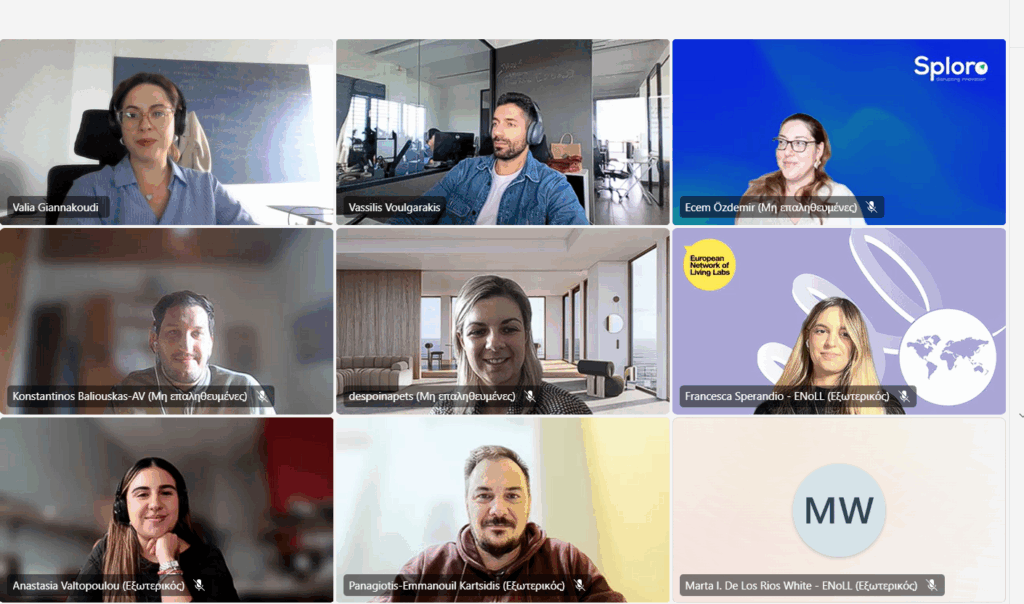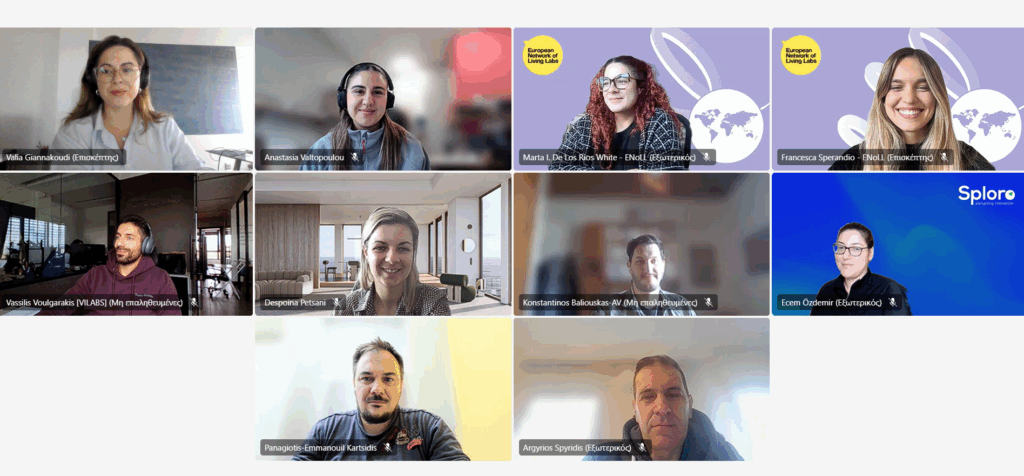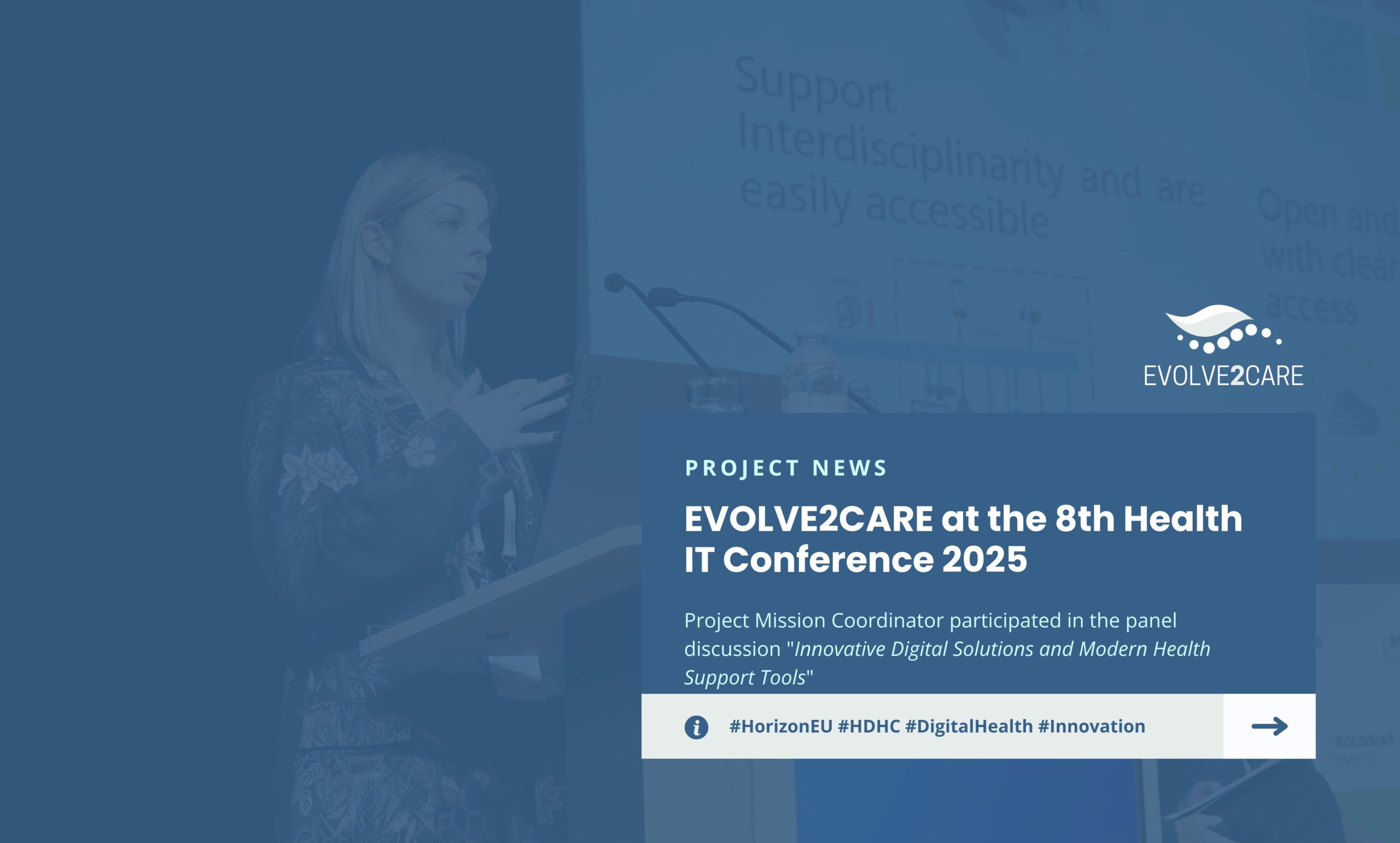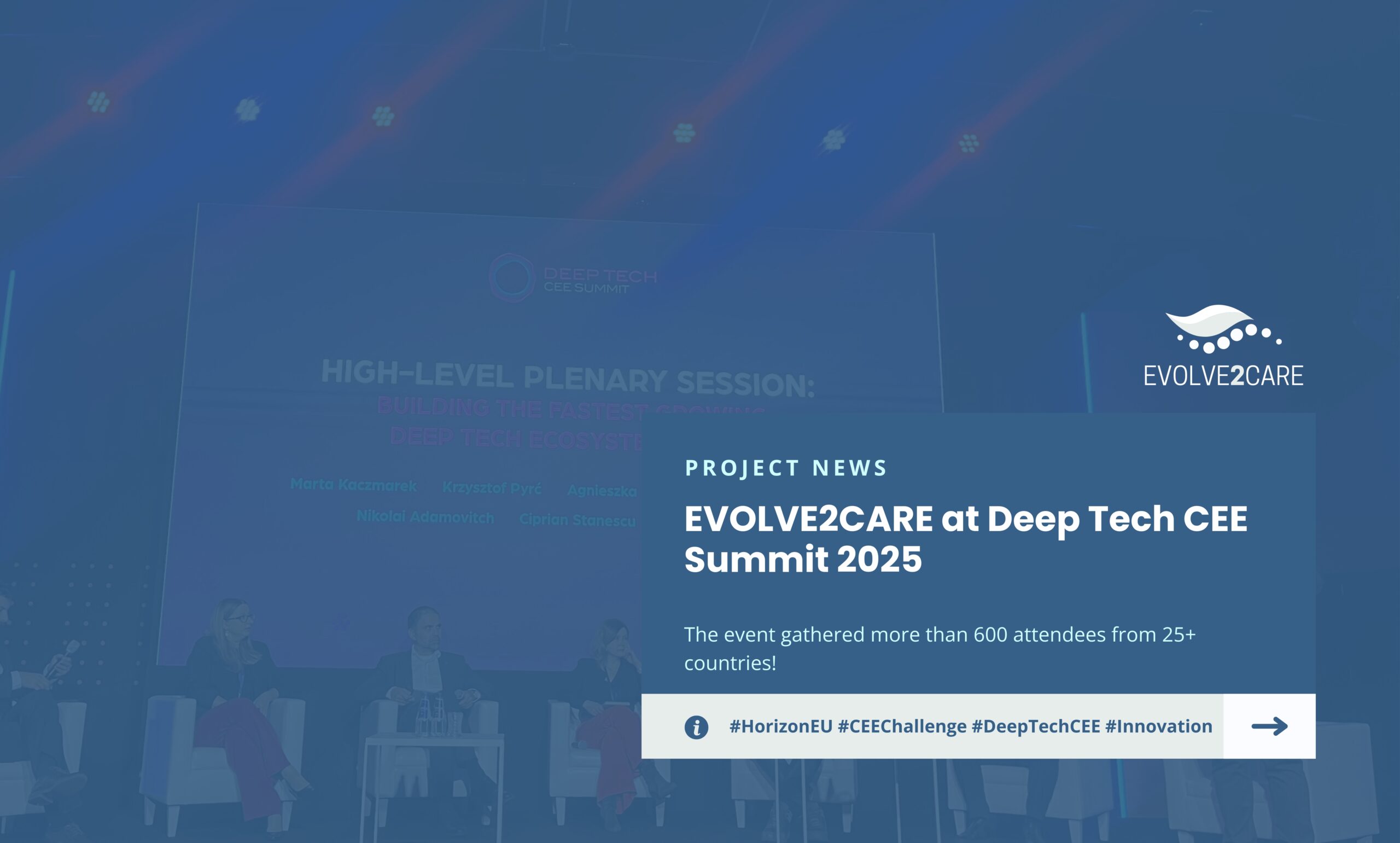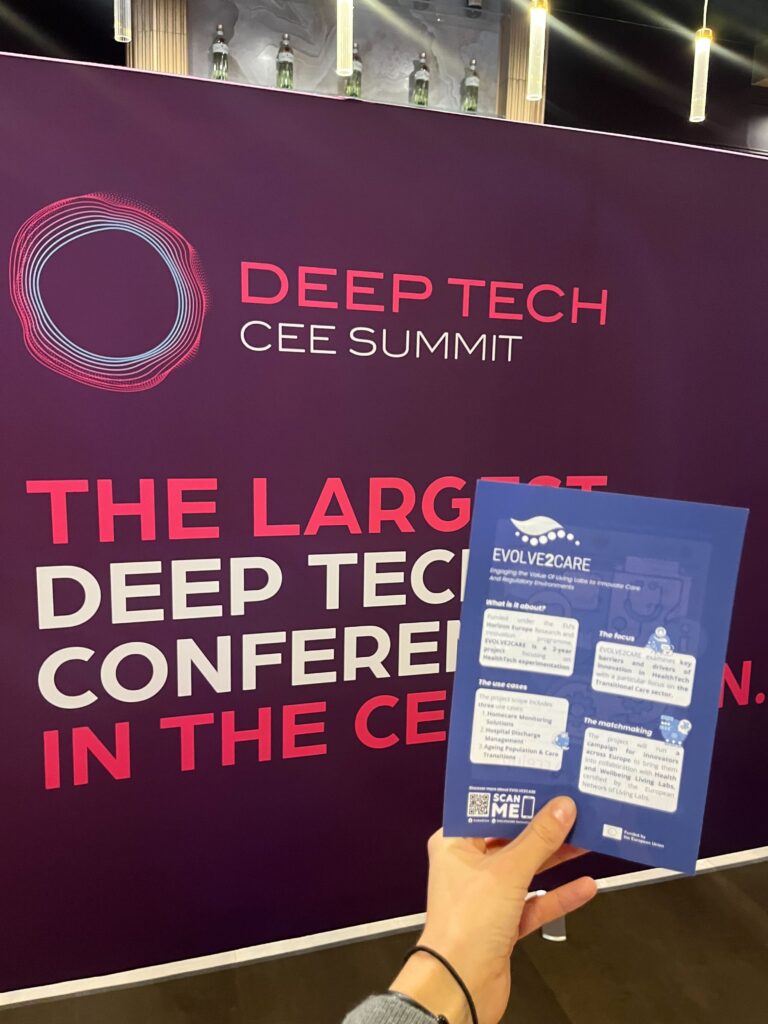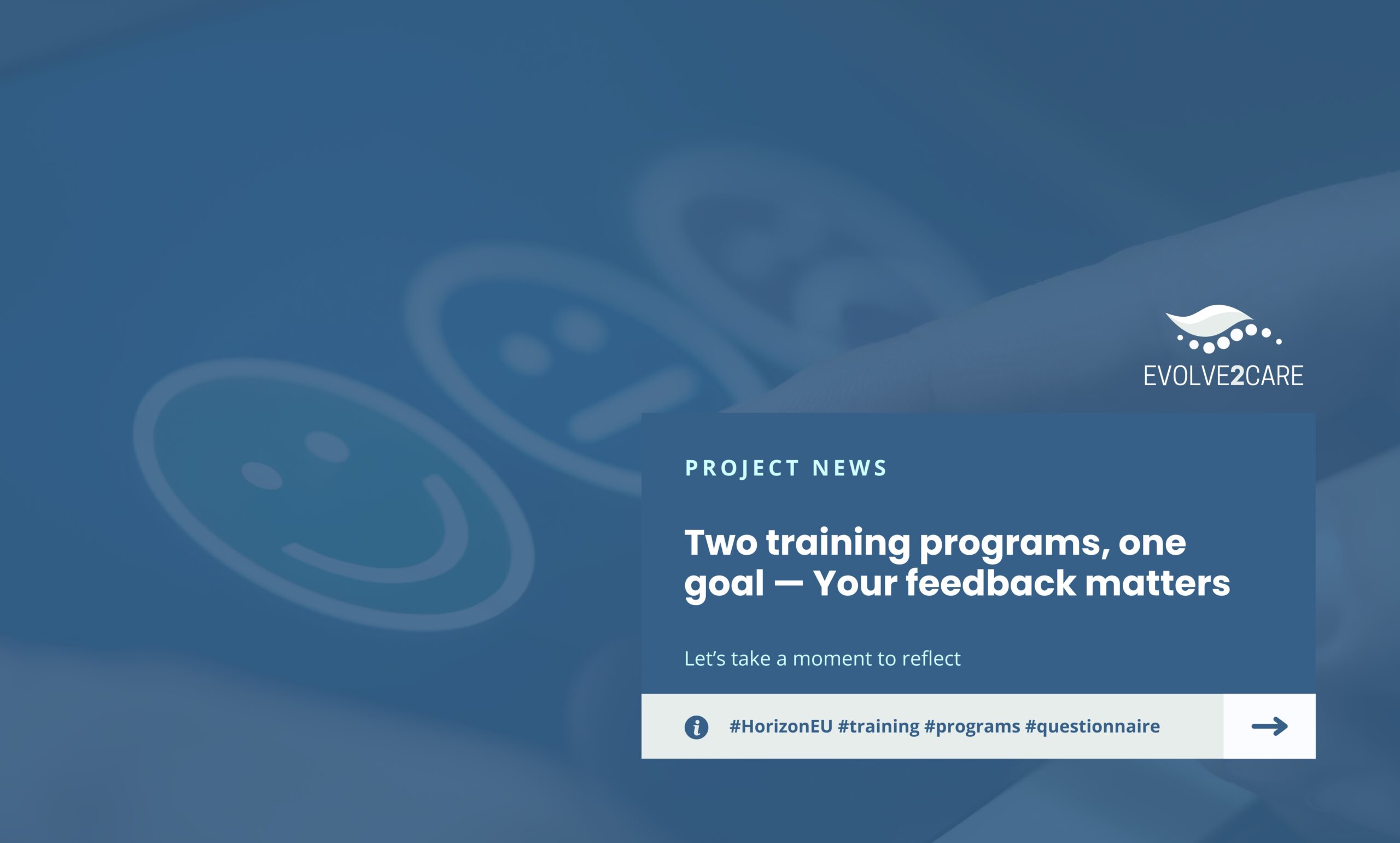EVOLVE2CARE will participate in Athens Digital Health Week 2026 (ADHW2026) with a dedicated workshop titled:
“Engaging the Value of Living Labs to Innovate Healthcare”
📍 Royal Olympic Hotel, Athens
📅 Wednesday, 18 February 2026
🕙 10:00–11:30 | Kallirhoe Hall
About Athens Digital Health Week 2026
Taking place from 16–20 February 2026, ADHW2026 brings together leading experts, innovators, policymakers, and decision-makers to address critical challenges and showcase breakthrough advancements shaping the future of digital health across Europe and beyond.
Co-organised by IDIKA S.A., the National eHealth Authority (NeHA) of Cyprus, and HL7 Hellas, the event serves as a high-profile networking hub where European projects, governance bodies, and digital health stakeholders connect to accelerate healthcare transformation across Europe.
Workshop Overview
Digital health innovation often encounters significant barriers, including regulatory complexity, interoperability limitations, misalignment with real clinical and user needs, financial constraints, and fragmented stakeholder collaboration.
This EVOLVE2CARE workshop will explore how Living Labs and open innovation ecosystems can help address these challenges by:
- Strengthening stakeholder engagement
- Supporting user-centred design
- Facilitating real-world experimentation
- Accelerating the translation of innovation into clinical practice
The session will combine theoretical reflections with practical insights drawn from real-world experiences of innovators, clinicians, and ecosystem actors.
Panel Discussion
The workshop will feature short expert interventions from key stakeholders across the digital health ecosystem:
- Spyridoula Trakaki, Co-Founder of Kakushin, will discuss the main challenges startups face in digital health and reflect on how open innovation ecosystems can create added value for emerging HealthTech ventures.
- Konstantina Kostopoulou, Chief Product Owner of Healthentia App, will share practical insights on stakeholder integration challenges during experimentation and how clinicians and third parties initially responded to innovation adoption.
- Thanos Loules & Ilias Rafail (IASIS AMKE) will explore service design challenges in health innovation and discuss how citizens can be meaningfully engaged throughout the experimentation process.
- Dr. Angelina Kouroubali, Digital Health Expert, will address stakeholder engagement pain points and examine how innovators can balance rigorous research and validation with the urgency of bringing solutions to market.
- Prof. Dr. Vassilis Vasilikos, Cardiologist, will provide the clinician’s perspective on innovation adoption, highlighting common barriers in clinical practice, nparticularly in cardiology, and attitudes toward integrating digital solutions into healthcare settings.
The session will conclude with an open discussion on how Living Labs can strengthen collaboration, enhance experimentation processes, and accelerate the translation of digital health innovation into sustainable real-world impact.
The workshop will be facilitated by the EVOLVE2CARE coordinator team from Aristotle University of Thessaloniki (AUTH).
🔗 Registration is required:
https://www.athensdigitalhealth.eu/registration
